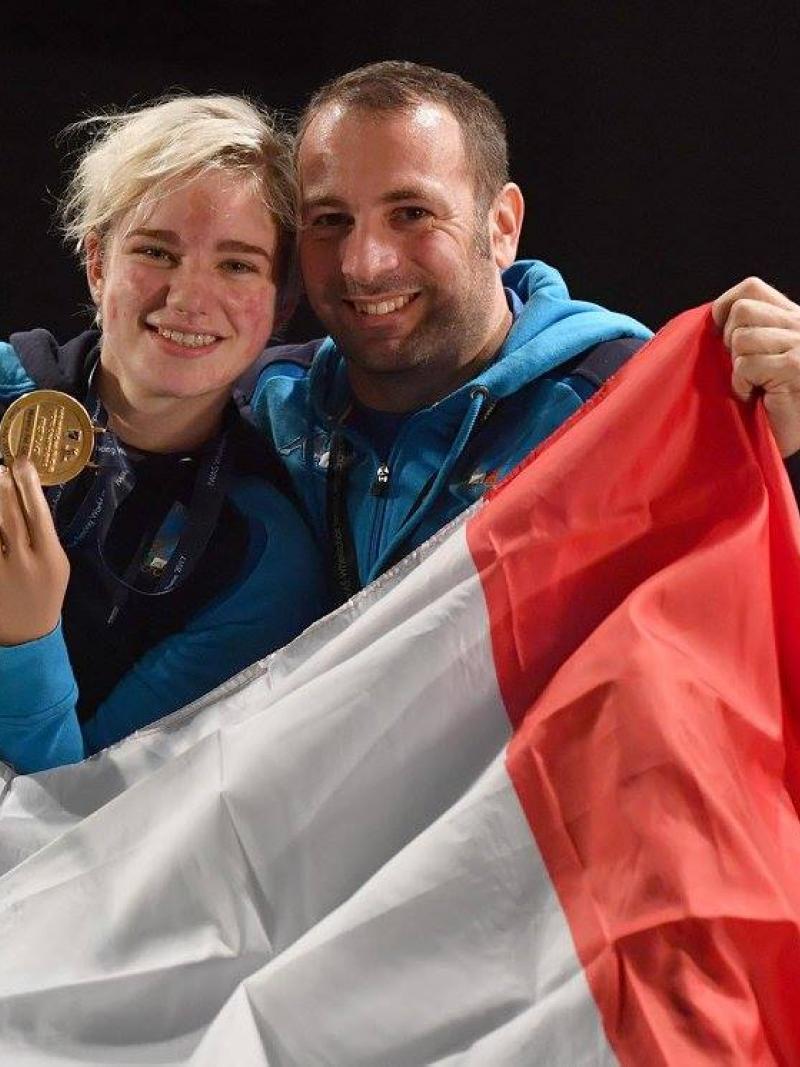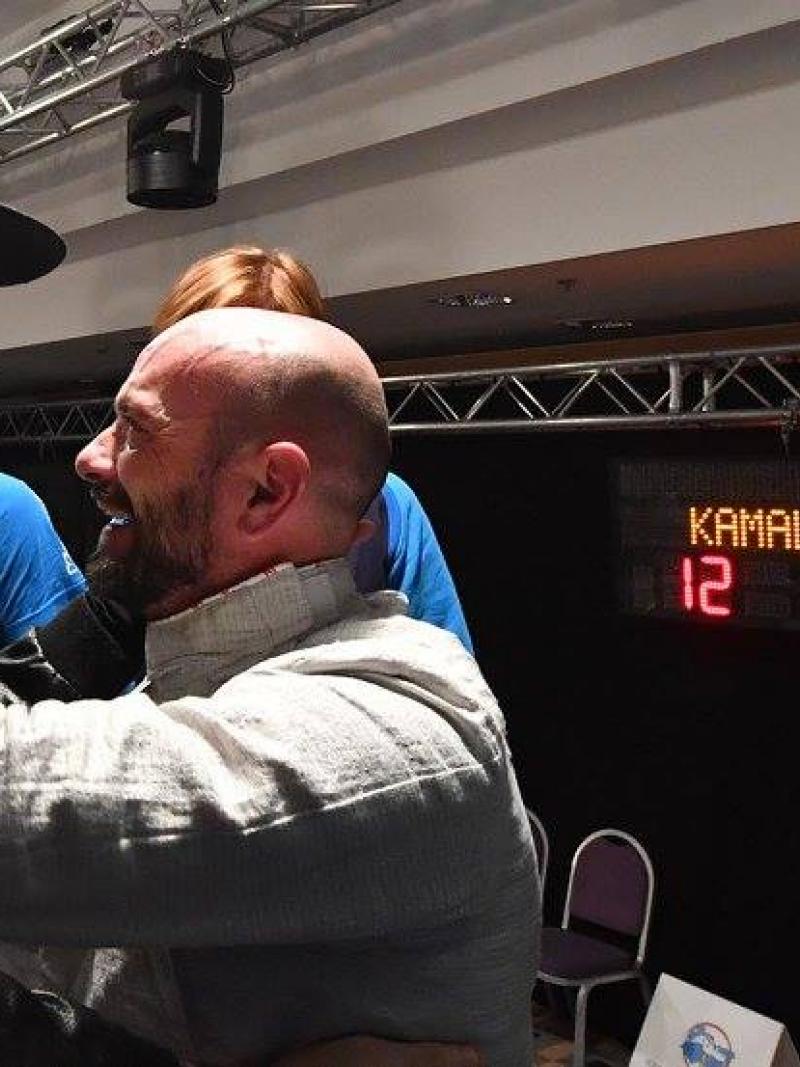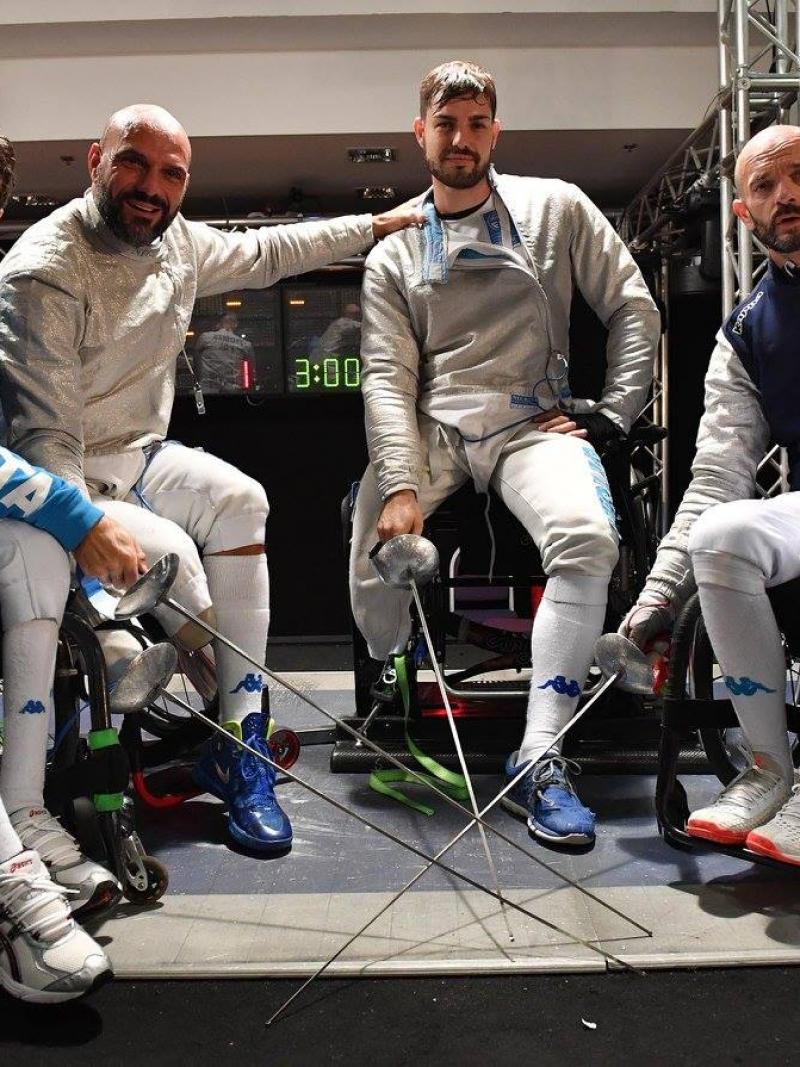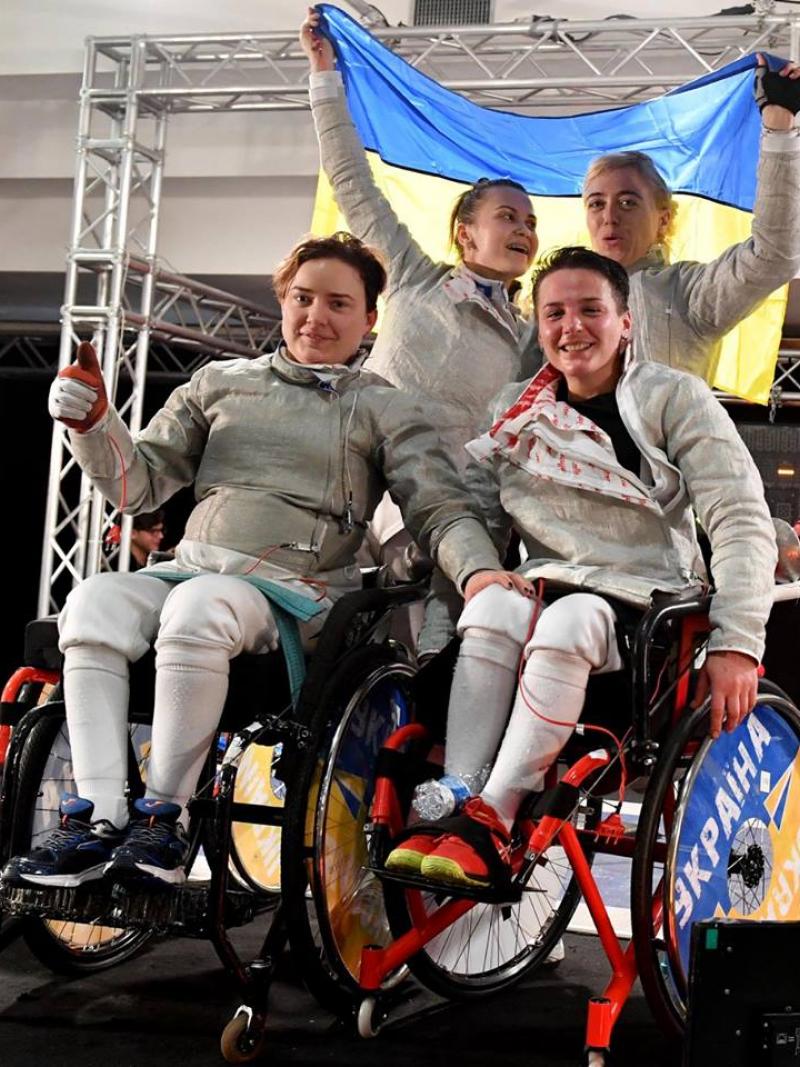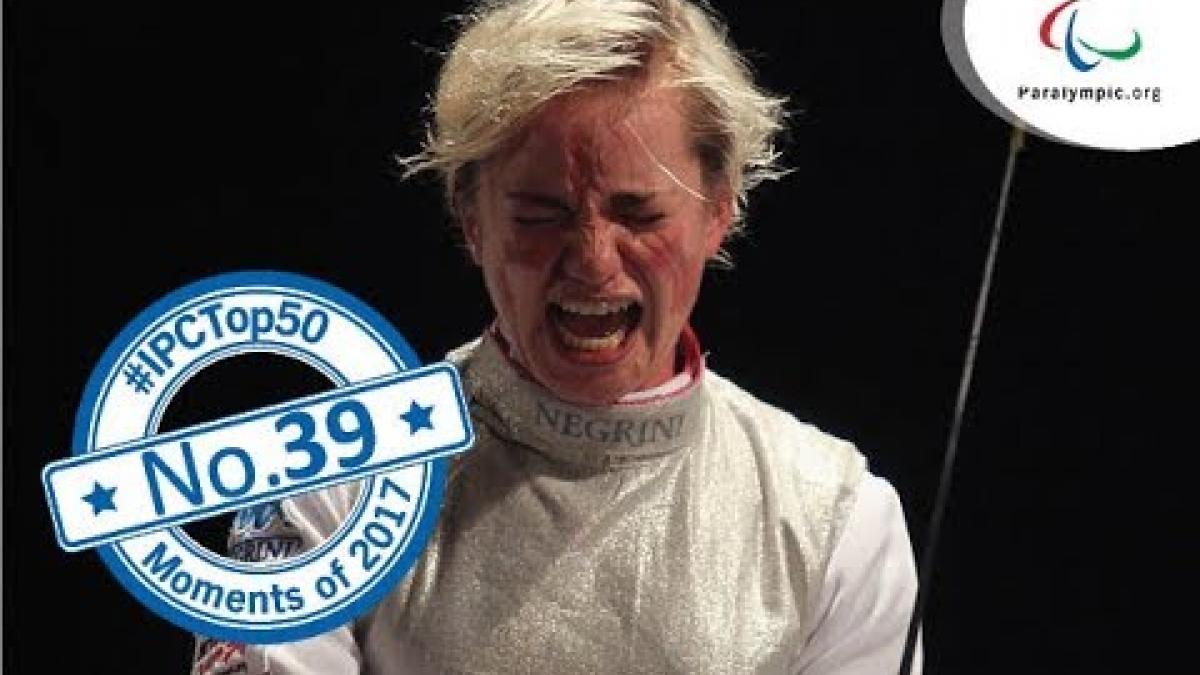Wheelchair fencing: 5 things we learned in 2017
Outstanding year for the sport topped off with stunning World Championships 26 Dec 2017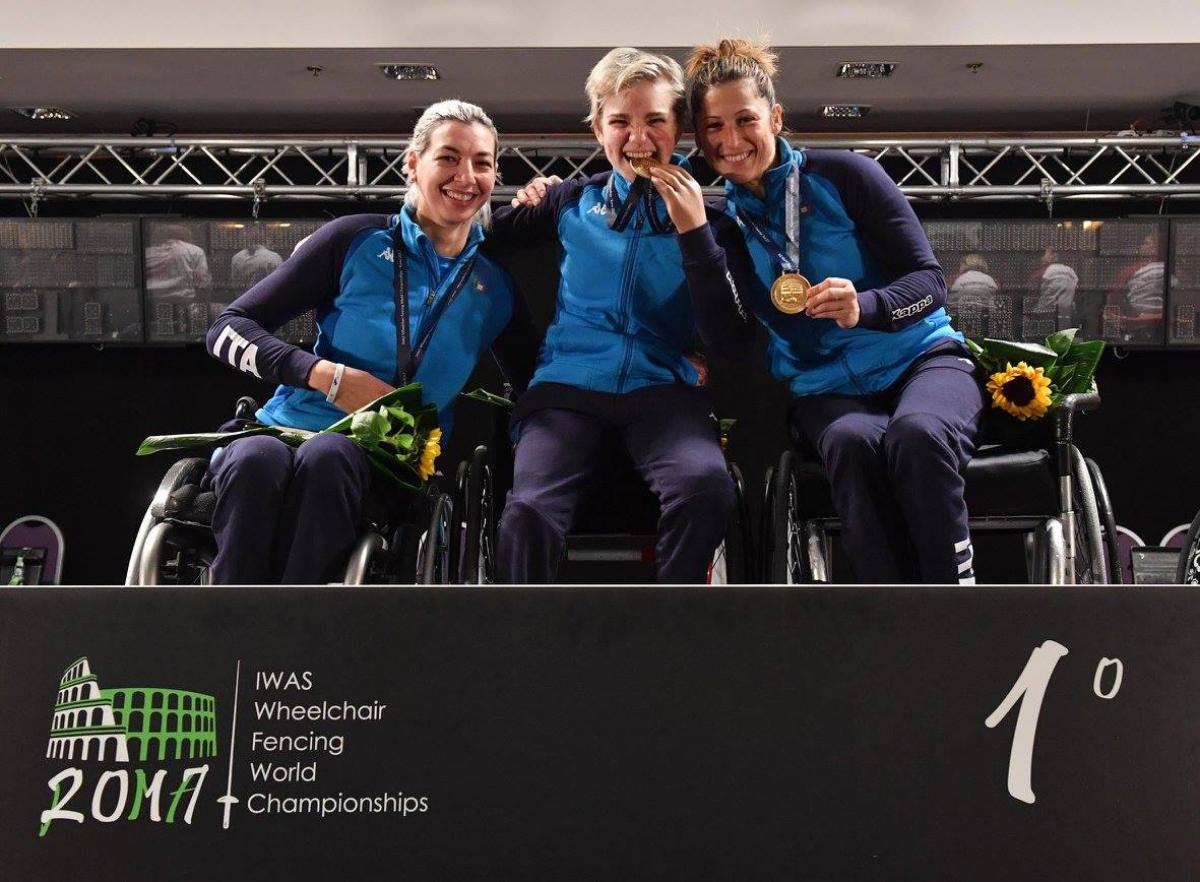
Italy's women celebrate foil gold at the 2017 IWAS Wheelchair Fencing World Championships.
With established competitors rediscovering their form and new talent rising to the top, it has been an exhilarating year in wheelchair fencing. Here are five things we learned in 2017.
1. Beatrice Vio is the one to beat. Again.
Yet again, Italy’s Beatrice Vio has gone a calendar year without tasting defeat. The last time the epee category B specialist failed to win was in the final of the World Cup in Warsaw, Poland, in July 2016. That narrow loss to Russia’s Viktoria Boykova* brought to an end a staggering run of 11 consecutive wins that saw Vio go the whole of 2015 without losing.
Now, the 20-year-old has repeated that feat with a run of six victories that goes back to gold on Vio’s Paralympic debut at Rio 2016. A medal-filled 2017 was brought to the perfect close as Vio successfully defended her title at the International Wheelchair and Amputee Sports Federation (IWAS) World Championships in Rome, Italy, in November.
If Vio continues her winning ways in 2018, breaking her own record run of titles is a very real possibility.
2. The Italians are turning team spirit into titles
While Beatrice Vio takes the headlines, she is far from the only star performer in the Italian squad. With experienced fencers such as Matteo Betti, Alessandro Sarri and Andrea Mogos competing alongside young talents such as Vio and Emmanuele Lambertini, the Italians have strength in depth.
It is the team spirit in the Italian camp that sets them apart, however. Their camaraderie is clear and in 2017 they turned it into results. At the World Championships in Rome, the host nation secured three golds and a silver in the team events.
The Italians have developed a winning team culture, which Vio embodied when speaking after the World Championships: “I like to win the individual competitions, but what I really love is to share the team victory with all my teammates.”
3. Dimitri Coutya is on top of the world
It was a landmark year for Great Britain’s Dimitri Coutya. Any disappointment at leaving Rio 2016 without a medal was erased with a series of stunning performances, not only in his favoured foil event, but also with the epee.
At November’s World Championships in Rome, Italy, Coutya stormed to the men’s category epee title with a gold-medal match victory over Ukraine’s Rio 2016 sabre gold medallist Anton Datsko.
The 20-year-old then returned the following day to take gold in the epee event. Coutya defeated Iraq’s defending champion Ali Ammar in the semi-final before beating Italy’s Alessio Sarri 15-14 in a nail-biting final.
4. Zsuzsanna Krajnyak still hungry for gold
After failing to win a Paralympic gold medal at the fifth attempt at Rio 2016, many speculated that Krajnyak would hang up her mask for good. In 2017 Krajnyak has proven any doubters wrong. The Hungarian’s hunger for success is as strong as ever.
Krajnyak rolled back the years at the World Championships in Rome, Italy, topping the podium in both the women’s category A epee and foil competitions. The victories mean Krajnyak ends 2017 as the World No.1 with both weapons.
The 38-year-old has medalled at every Paralympic Games she has competed in, though her collection is comprised only of silver and bronze. If her current form continues, securing that elusive gold at Tokyo 2020 looks a distinct possibility.
5. Gu Haiyan is an exciting prospect
The most notable newcomer in the 2017 season was China’s Gu Haiyan. The 17-year-old’s debut at the World Cup in Warsaw, Poland, in June surprised spectators and rivals alike.
In the women’s category A competition in Warsaw, Gu raced to the final against Hong Kong’s Chui Yee Yu. Gu looked unfazed by the occasion and almost overcame the seven-time Paralympic champion, eventually losing by just one point.
Gu did manage to cause an upset the following day, defeating Ukraine’s World No.1 Nataliia Morkvych 15-2 in the final of the sabre event. Gu then starred again as China won the women’s team sabre event in Warsaw.
Having not competed on the international scene since, the prospect of seeing Gu in action again in 2018 is an exciting one.
*Editor's note: The International Paralympic Committee suspended the Russian Paralympic Committee on 7 August 2016 for its inability to fulfil its IPC membership responsibilities and obligations, in particular its obligation to comply with the IPC Anti-Doping Code and the World Anti-Doping Code (to which it is also a signatory). As a result of the suspension, Russian athletes cannot enter IPC sanctioned events or competitions, including the Paralympic Games.

 Facebook
Facebook
 Instagram
Instagram
 Twitter
Twitter
 Youtube
Youtube
 TikTok
TikTok
 Newsletter Subscribe
Newsletter Subscribe

